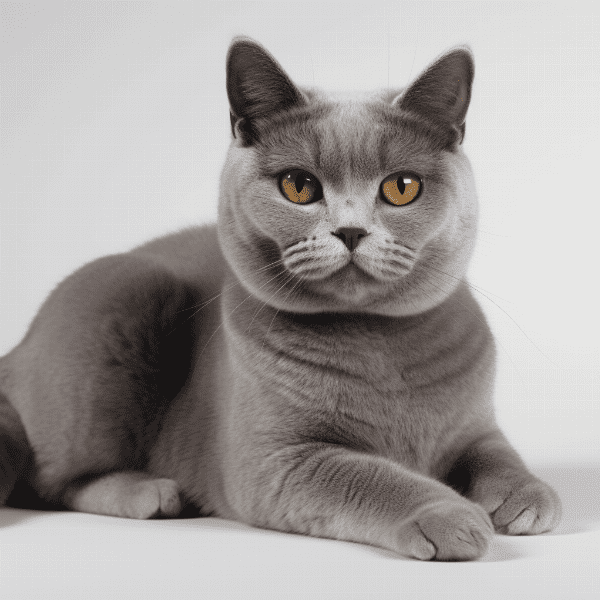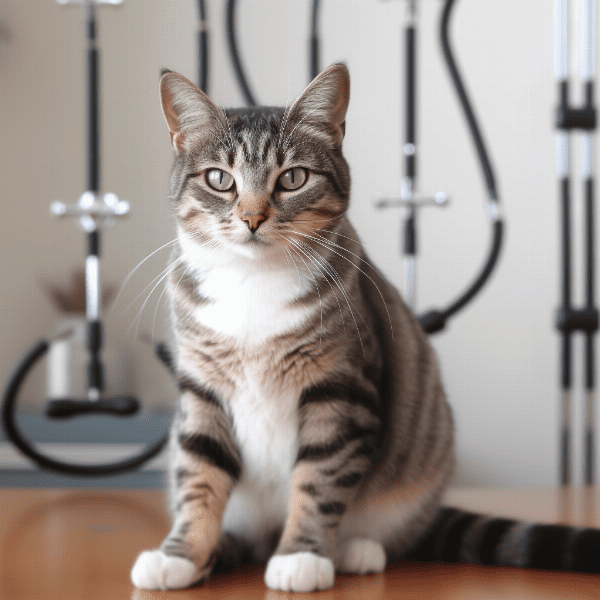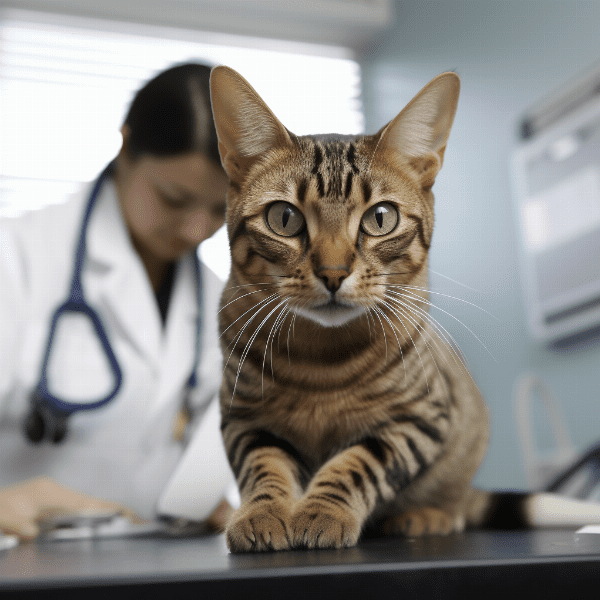Table of Contents
- What is HCM and why is genetic testing important for cats?
- How does HCM genetic testing work in cats?
- Types of genetic tests available for HCM in cats.
- The benefits and limitations of HCM genetic testing in cats.
- When should you consider HCM genetic testing for your cat?
- Understanding your cat’s HCM genetic test results.
- What to do if your cat tests positive for HCM.
- HCM prevention and management strategies for cats.
- The future of HCM genetic testing in cats.
- Conclusion: The importance of HCM genetic testing in cats.
What is HCM and why is genetic testing important for cats?
Hypertrophic cardiomyopathy (HCM) is a common and potentially fatal heart condition in cats. It occurs when the walls of the heart’s chambers thicken and become stiff, making it difficult for the heart to pump blood effectively. HCM is a genetic disease that is inherited in an autosomal dominant manner, which means that a cat only needs to inherit one copy of the abnormal gene from either parent to develop the disease.
Understanding the Genetics of HCM in Cats
HCM is caused by mutations in one or more genes that regulate the structure and function of the heart. These mutations can affect the proteins that make up the heart’s muscle fibers, leading to abnormal thickening of the heart walls. While there are several genes associated with HCM in cats, a mutation in the MYBPC3 gene is the most common cause of the disease.
Why is Genetic Testing Important for Cats with HCM?
Genetic testing can identify cats that carry a mutation in the genes associated with HCM. This is important for several reasons:
- Early Detection: Cats that carry a mutation in the genes associated with HCM may not show any symptoms of the disease until later in life. Genetic testing can detect the mutation before the cat develops any signs of the disease, allowing for early detection and intervention.
- Preventive Care: If a cat tests positive for an HCM-associated mutation, their veterinarian can develop a preventive care plan to monitor their heart health and prevent or delay the onset of the disease.
- Breeding Decisions: Genetic testing can help breeders make informed decisions about which cats to breed. Breeding two cats that carry a mutation in the genes associated with HCM increases the risk of producing offspring with the disease.
- Peace of Mind: Genetic testing can provide cat owners with peace of mind knowing that they are taking proactive steps to ensure the health and well-being of their pet.
In summary, genetic testing is an important tool for identifying cats that carry a mutation in the genes associated with HCM. It allows for early detection and intervention, preventive care, informed breeding decisions, and peace of mind for cat owners.
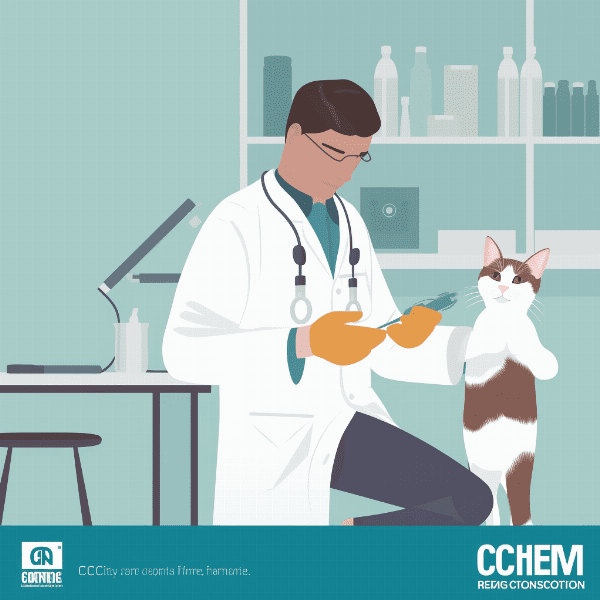
How does HCM genetic testing work in cats?
HCM genetic testing in cats involves analyzing a sample of the cat’s DNA to look for mutations in the genes associated with the disease. There are several types of genetic tests available, including direct DNA sequencing and genotyping.
Sample Collection
The sample for genetic testing can be obtained through a variety of methods, including blood, cheek swab, or tissue samples. Cheek swabs are the most commonly used method for collecting DNA samples from cats, as they are non-invasive and easy to obtain.
Interpretation of Results
The results of HCM genetic testing in cats are reported as either positive, negative, or inconclusive. A positive result indicates that the cat carries a mutation in one of the genes associated with HCM, while a negative result indicates that the cat does not carry any of the known mutations. An inconclusive result means that the test was unable to determine whether or not the cat carries a mutation, and further testing may be required.
.
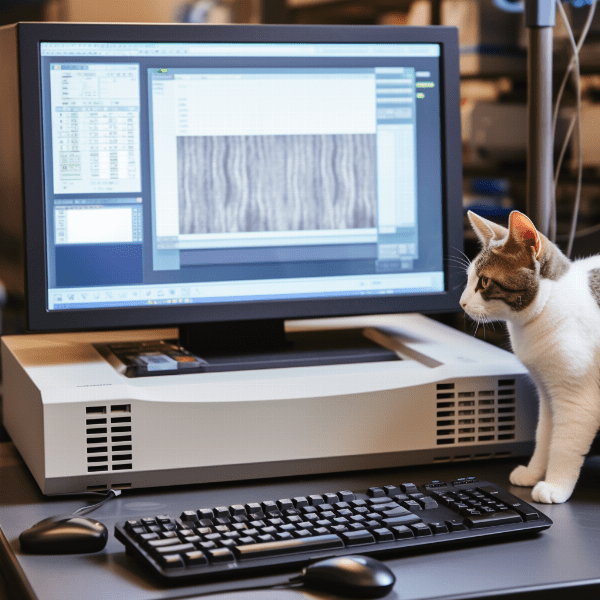
Types of genetic tests available for HCM in cats.
There are several types of genetic tests available for HCM in cats, each with its own advantages and limitations. Some of the most commonly used genetic tests for HCM in cats are:
PCR-Based Tests
Polymerase chain reaction (PCR)-based tests are a type of genetic test that uses DNA amplification to detect specific mutations in the genes associated with HCM. These tests are fast, accurate, and relatively inexpensive. They can detect known mutations with high accuracy and can be used to screen large numbers of cats quickly.
Direct DNA Sequencing
Direct DNA sequencing involves reading the entire sequence of the DNA molecule to identify any mutations in the genes associated with HCM. This is the most comprehensive type of genetic test, but it is also the most expensive and time-consuming. Direct DNA sequencing is particularly useful when there is no known mutation associated with the disease, as it can identify new or rare mutations.
Panel Testing
Panel testing involves analyzing multiple genes associated with HCM in a single test. This approach is particularly useful when there are multiple genes associated with the disease or when the specific mutation is unknown. Panel testing can detect known mutations and may identify new or rare mutations.
Limitations of Genetic Testing
While genetic testing is a useful tool for identifying cats that carry a mutation in the genes associated with HCM, it is not a foolproof method for predicting the onset or severity of the disease. Not all cats that carry a mutation will develop HCM, and some cats without a known mutation may still develop the disease. Additionally, genetic testing cannot predict the timing or severity of the disease, which can vary widely even among cats with the same mutation.
In summary, there are several types of genetic tests available for HCM in cats, including PCR-based tests, direct DNA sequencing, genotyping, and panel testing. Each type of test has its own advantages and limitations, and the choice of test will depend on the individual cat’s health and family history. While genetic testing is a useful tool for identifying cats that carry a mutation in the genes associated with HCM, it is not a foolproof method for predicting the onset or severity of the disease.
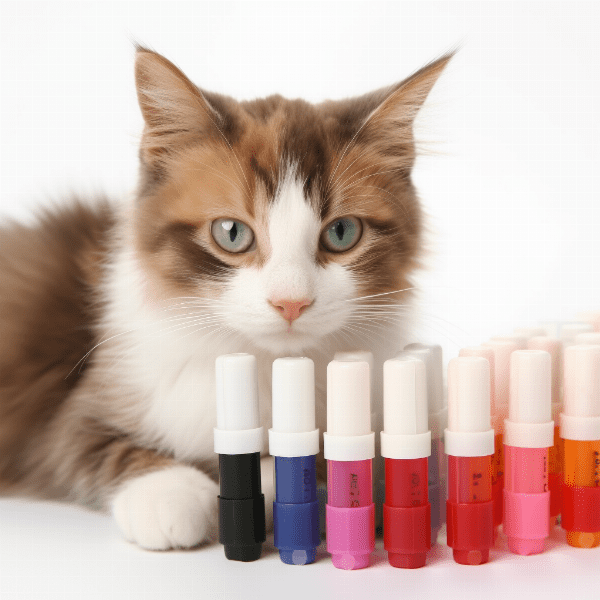
The benefits and limitations of HCM genetic testing in cats.
HCM genetic testing in cats has several benefits, but it also has some limitations. Understanding the advantages and disadvantages of genetic testing is important for cat owners and veterinarians when making informed decisions about testing.
Benefits of HCM Genetic Testing in Cats
Genetic testing for HCM in cats has several benefits, including:
- Early Detection: HCM can be a silent disease, with no symptoms until the disease is advanced. Genetic testing can detect the disease before the cat shows any signs, allowing for early intervention and treatment.
- Preventive Care: If a cat tests positive for an HCM-associated mutation, their veterinarian can develop a preventive care plan to monitor their heart health and prevent or delay the onset of the disease.
- Informed Breeding Decisions: Genetic testing can help breeders make informed decisions about which cats to breed. Breeding two cats that carry a mutation in the genes associated with HCM increases the risk of producing offspring with the disease.
- Peace of Mind: Genetic testing can provide cat owners with peace of mind knowing that they are taking proactive steps to ensure the health and well-being of their pet.
Limitations of HCM Genetic Testing in Cats
While genetic testing is a valuable tool for identifying cats that carry a mutation in the genes associated with HCM, there are some limitations to consider:
- False Negatives: Genetic testing may miss rare or new mutations that are not included in the test panel. Additionally, not all cats that develop HCM carry a known mutation, so a negative test result does not guarantee that a cat will not develop the disease.
- False Positives: Genetic testing may identify a cat as carrying a mutation, but the mutation may not be associated with the development of HCM in that particular cat. This can lead to unnecessary worry and interventions.
- Cost: Genetic testing can be expensive, and not all cat owners may be able to afford the test.
- Interpretation: The results of genetic testing should be interpreted in the context of the cat’s individual health and family history. A positive test result does not necessarily mean that a cat will develop the disease, and a negative test result does not guarantee that a cat will not develop the disease.
In summary, genetic testing for HCM in cats has several benefits, including early detection, preventive care, informed breeding decisions, and peace of mind. However, there are also some limitations to consider, including false negatives, false positives, cost, and interpretation of results. Cat owners and veterinarians should carefully consider the benefits and limitations of genetic testing when making informed decisions about testing.
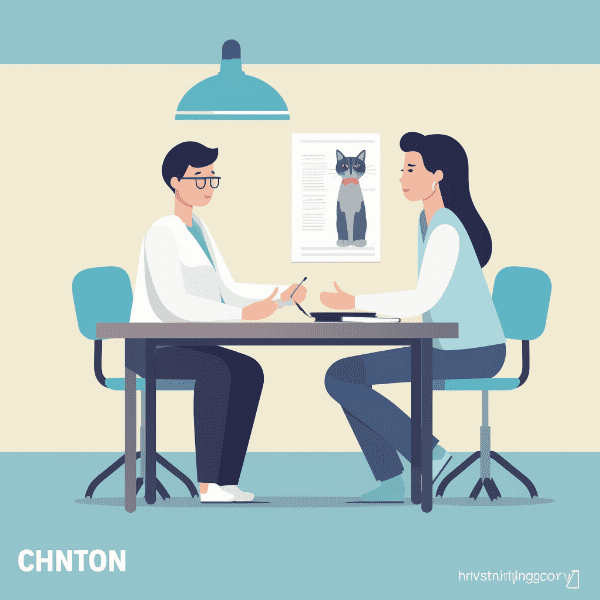
When should you consider HCM genetic testing for your cat?
HCM genetic testing may be recommended for cats that are at high risk of developing the disease, or for cats that are used for breeding. Here are some situations where HCM genetic testing may be considered:
High-Risk Breeds
Certain breeds of cats, such as Maine Coons, Ragdolls, and British Shorthairs, are at higher risk of developing HCM. If you have a cat of one of these breeds, genetic testing may be recommended to identify any mutations associated with the disease.
Family History of HCM
If a cat’s parent or sibling has been diagnosed with HCM, the cat may be at higher risk of developing the disease. Genetic testing can identify any mutations associated with the disease, allowing for early detection and preventive care.
Breeding Cats
If you plan to breed your cat, genetic testing may be recommended to identify any mutations associated with HCM. Breeding two cats that carry a mutation in the genes associated with HCM increases the risk of producing offspring with the disease. Genetic testing can help breeders make informed decisions about which cats to breed and can reduce the risk of producing offspring with HCM.
Pre-Anesthetic Screening
Some veterinarians may recommend HCM genetic testing as part of a pre-anesthetic screening for cats undergoing surgery or anesthesia. HCM can be a silent disease, and cats with undiagnosed HCM may be at higher risk of complications during anesthesia.
Older Cats
HCM is more common in older cats, and cats over the age of 5 may be at higher risk of developing the disease. Genetic testing may be recommended for older cats to identify any mutations associated with the disease.
In summary, HCM genetic testing may be recommended for cats that are at high risk of developing the disease, or for cats that are used for breeding. High-risk breeds, a family history of HCM, breeding cats, pre-anesthetic screening, and older cats are some situations where genetic testing may be considered. Talk to your veterinarian about whether genetic testing is recommended for your cat.

Understanding your cat’s HCM genetic test results.
If you have had your cat tested for HCM-associated mutations, it is important to understand the meaning of the test results. Here is what you need to know about interpreting your cat’s HCM genetic test results:
Positive Result
A positive result means that your cat carries a mutation in one of the genes associated with HCM. This does not mean that your cat will develop the disease, but it does mean that your cat is at higher risk of developing the disease than a cat without the mutation.
If your cat tests positive for an HCM-associated mutation, your veterinarian may recommend more frequent check-ups, diet changes, or medications to manage the disease. You may also want to consider testing any breeding cats to identify carriers of the mutation and reduce the risk of producing offspring with the disease.
Negative Result
A negative result means that your cat does not carry any of the known mutations associated with HCM. However, it is important to note that not all cats that develop HCM carry a known mutation, so a negative test result does not guarantee that your cat will not develop the disease.
If your cat has a negative test result, your veterinarian may still recommend regular check-ups to monitor your cat’s heart health.
Inconclusive Result
An inconclusive result means that the test was unable to determine whether or not your cat carries a mutation in the genes associated with HCM. This can occur if the sample was of poor quality or if the specific mutation was not included in the test panel.
If your cat has an inconclusive test result, your veterinarian may recommend further testing or monitoring to determine your cat’s risk of developing the disease.
Counseling and Follow-Up Care
Regardless of the test result, it is important to discuss the results with your veterinarian to develop a plan for ongoing monitoring and preventive care. If your cat tests positive for an HCM-associated mutation, your veterinarian can develop a preventive care plan to monitor your cat’s heart health and prevent or delay the onset of the disease.
In summary, understanding your cat’s HCM genetic test results is important for developing a plan for ongoing monitoring and preventive care. Positive, negative, and inconclusive results each have their own implications, and it is important to discuss the results with your veterinarian to ensure the best possible care for your cat.
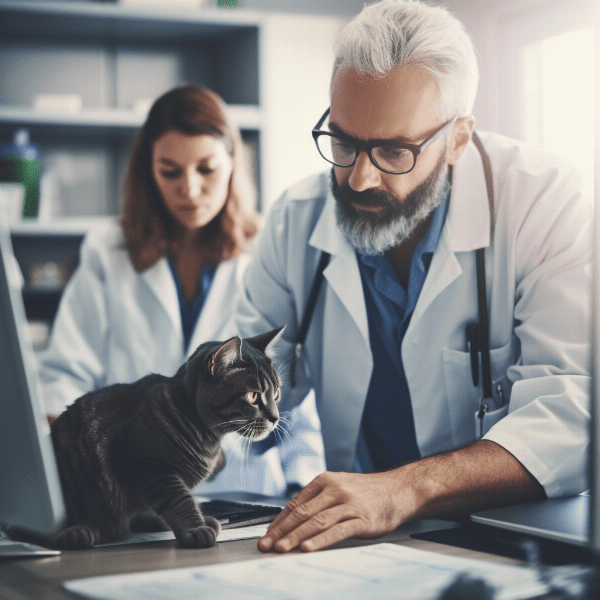
What to do if your cat tests positive for HCM.
If your cat tests positive for an HCM-associated mutation, there are several steps you can take to manage the disease and improve your cat’s quality of life.
Talk to Your Veterinarian
The first step is to talk to your veterinarian about the test results and what they mean for your cat’s health. Your veterinarian can develop a preventive care plan to monitor your cat’s heart health and prevent or delay the onset of the disease.
Schedule Regular Check-Ups
Regular check-ups are important for cats with HCM-associated mutations, as they can help detect any changes in your cat’s heart health and allow for early intervention and treatment. Your veterinarian may recommend more frequent check-ups for your cat, depending on the severity of the mutation and your cat’s individual health history.
Dietary Changes
Dietary changes may be recommended for cats with HCM-associated mutations, as some diets may exacerbate the disease. Your veterinarian may recommend a low-sodium diet or a diet high in omega-3 fatty acids to improve your cat’s heart health.
Consider Breeding Decisions
If you plan to breed your cat, it is important to consider the implications of the HCM-associated mutation. Breeding two cats that carry a mutation in the genes associated with HCM increases the risk of producing offspring with the disease. Your veterinarian can provide guidance on breeding decisions and can recommend testing any breeding cats to identify carriers of the mutation.
In summary, if your cat tests positive for an HCM-associated mutation, there are several steps you can take to manage the disease and improve your cat’s quality of life. Talk to your veterinarian, schedule regular check-ups, consider dietary changes and medications, reduce stress in your cat’s environment, and consider breeding decisions. With proper care and management, cats with HCM-associated mutations can live long and happy lives.
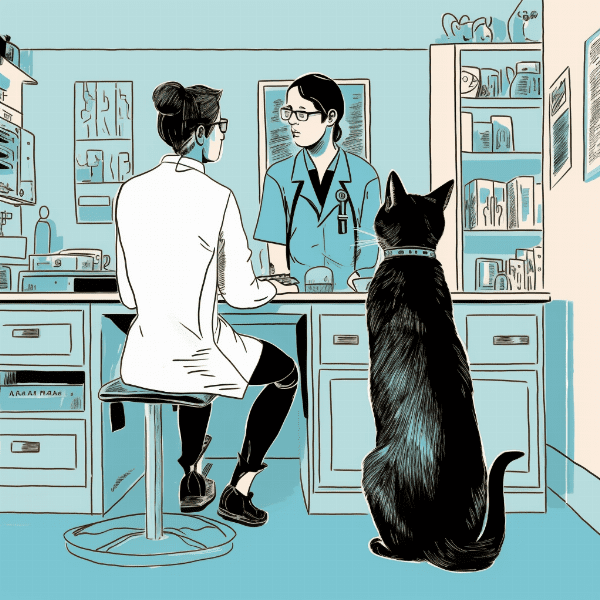
HCM prevention and management strategies for cats.
There are several strategies that cat owners and veterinarians can use to prevent or manage HCM in cats.
Regular Check-Ups
Regular check-ups are important for all cats, but they are particularly important for cats with a family history of HCM or those at high risk of developing the disease. Regular check-ups can help detect any changes in your cat’s heart health and allow for early intervention and treatment.
Genetic Testing
Genetic testing can identify cats that carry mutations in the genes associated with HCM, allowing for early detection and preventive care. Genetic testing can also help breeders make informed decisions about which cats to breed, reducing the risk of producing offspring with the disease.
Diet
Dietary changes may be recommended for cats with HCM to improve heart health. A low-sodium diet or a diet high in omega-3 fatty acids can help improve heart function and reduce the risk of complications.
Medications
Medications may be prescribed to manage the symptoms of HCM or to prevent complications. Medications that relax the heart muscle or reduce the risk of blood clots may be prescribed to improve heart function and reduce the risk of complications.
Avoid Certain Medications
Some medications can exacerbate the symptoms of HCM, so it is important to avoid certain medications unless they are specifically prescribed by your veterinarian. Common medications to avoid include decongestants, asthma medications, and some anesthetics.
In summary, there are several strategies that cat owners and veterinarians can use to prevent or manage HCM in cats. Regular check-ups, genetic testing, diet, medications, reducing stress, and avoiding certain medications can all help improve your cat’s heart health and quality of life. Talk to your veterinarian about the best strategies for managing HCM in your cat.
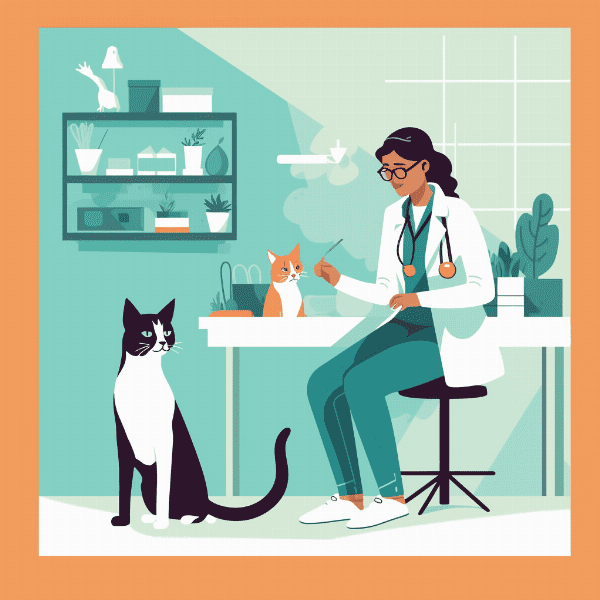
The future of HCM genetic testing in cats.
Genetic testing for HCM in cats has come a long way in recent years, and there is ongoing research to improve the accuracy and effectiveness of testing.
Expanded Test Panels
As new mutations associated with HCM are discovered, test panels may be expanded to include these new mutations. This can improve the accuracy of genetic testing and allow for earlier detection of the disease.
Improved Accuracy
As technology advances, the accuracy of genetic testing is likely to improve. New sequencing technologies and algorithms can improve the sensitivity and specificity of genetic testing, allowing for more accurate identification of cats that carry mutations associated with HCM.
Personalized Medicine
As genetic testing becomes more accurate and comprehensive, it may be possible to develop personalized medicine approaches for cats with HCM-associated mutations. This can include tailored medications and diet recommendations based on a cat’s individual genetic profile.
Prevention Strategies
As more is learned about the genetics of HCM in cats, it may be possible to develop new prevention strategies. This can include targeted breeding programs to reduce the incidence of HCM, as well as new medications and treatments to prevent or delay the onset of the disease.
In summary, the future of HCM genetic testing in cats is promising. Expanded test panels, improved accuracy, personalized medicine, and prevention strategies are all areas of ongoing research. As new discoveries are made, cat owners and veterinarians will have more tools to prevent and manage HCM in cats.
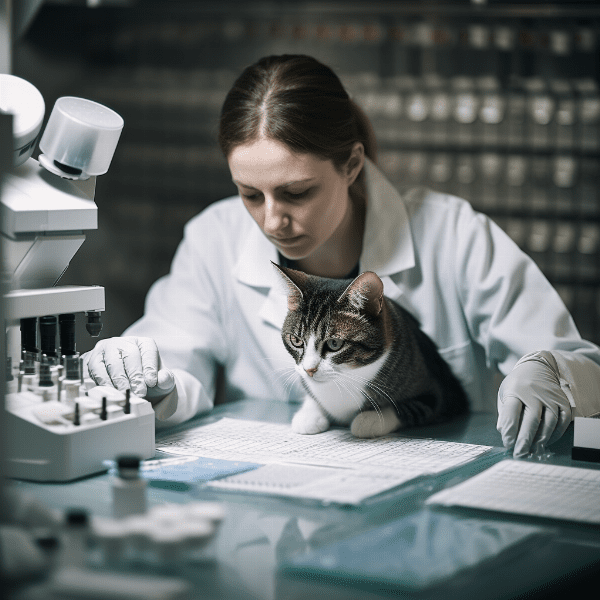
Conclusion: The importance of HCM genetic testing in cats.
HCM is a serious and potentially life-threatening disease that affects many cats, particularly certain breeds. Genetic testing is an important tool for identifying cats that carry mutations associated with HCM, allowing for early detection and preventive care.
Genetic testing can help cat owners and breeders make informed decisions about their cat’s health and breeding decisions. It can also help veterinarians develop preventive care plans to monitor a cat’s heart health and prevent or delay the onset of the disease.
While genetic testing is not a guarantee that a cat will or will not develop HCM, it is an important tool for managing the disease and improving a cat’s quality of life. Regular check-ups, dietary changes, medications, stress reduction, and avoidance of certain medications can all help manage the disease and improve a cat’s heart health.
As technology advances, the accuracy and effectiveness of genetic testing for HCM in cats is likely to improve, providing cat owners and veterinarians with even more tools to prevent and manage the disease.
In summary, HCM genetic testing is an important tool for cat owners, breeders, and veterinarians. By identifying cats that carry mutations associated with HCM and developing preventive care plans, we can improve the health and quality of life of cats affected by this disease.


